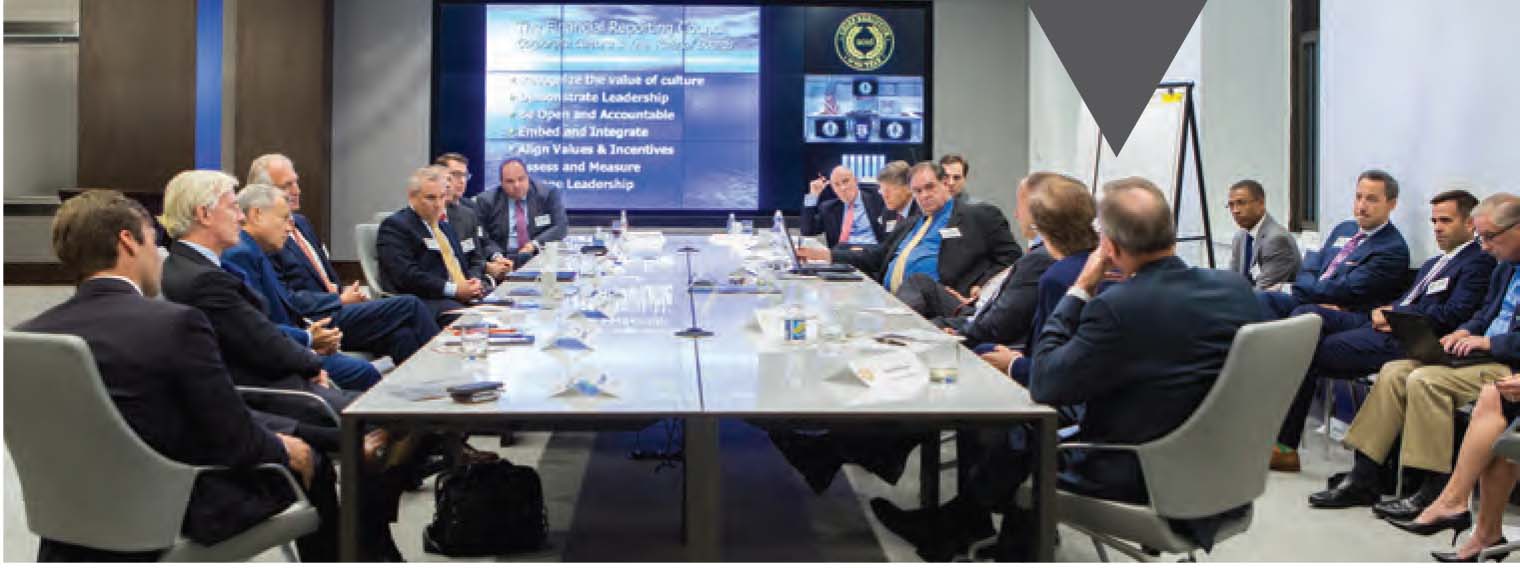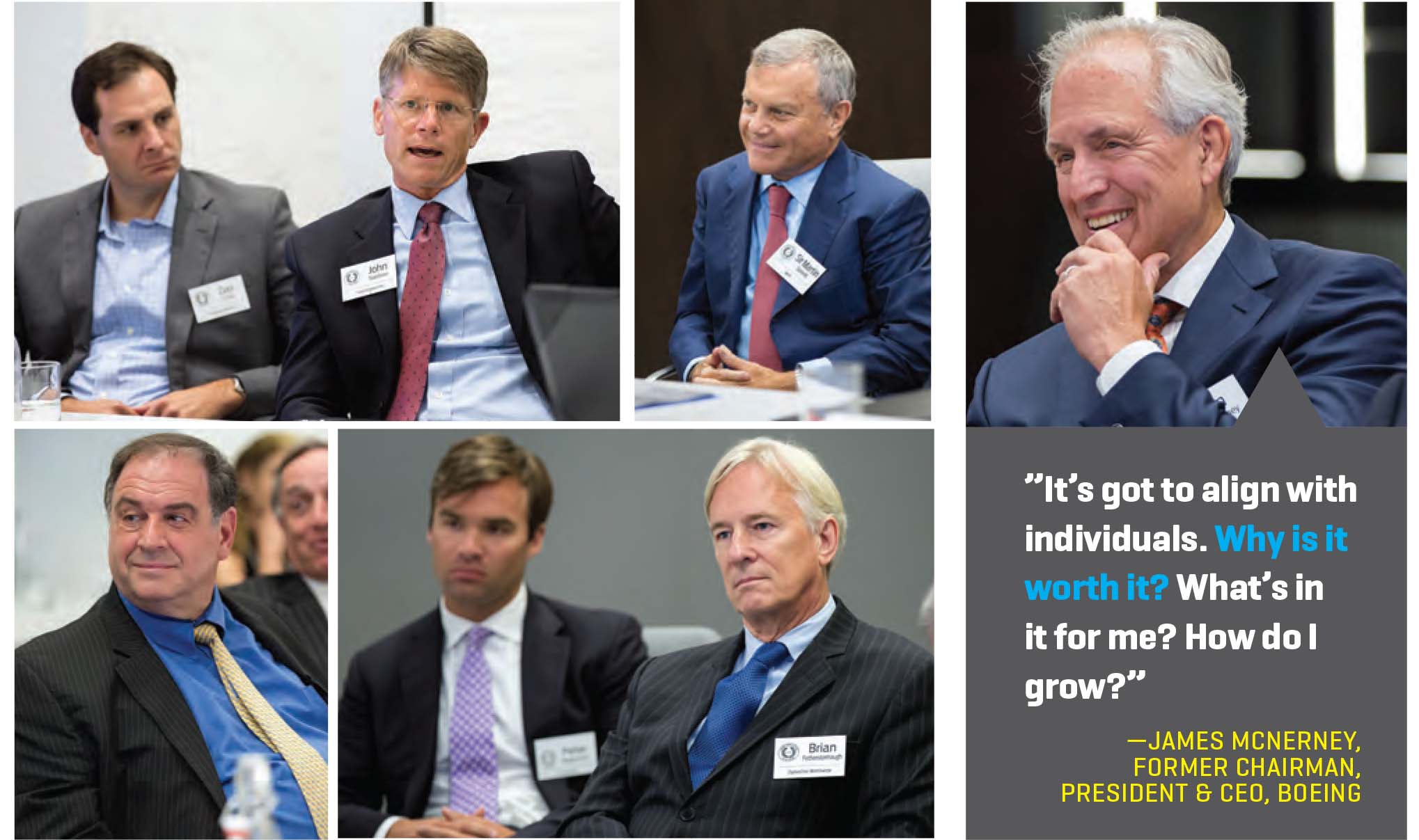
Hundreds of books have been written about how CEOs should create corporate cultures that use purpose and a sense of mission to help their companies perform at a high level. Thousands of speeches and similar numbers of consulting assignments have tackled the same challenge.
A group of 15 CEOs at a Chief Executive roundtable co-sponsored by PURE Insurance on “Building a High Performance, Highly Engaged Culture” concluded that the challenge is only getting greater. The rise of the Millennials, a demographic contingent of 20- and 30-year olds, means that CEOs cannot simply assume that they will embrace corporate ideals. They have their own distinct set of values that they cling to. Many, for example, choose to work short-periods of time as part of a flexible work force.
At the same time, CEOs are facing ever greater pressures to achieve short-term financial results because of the rise of increasingly successful activist investors and private equity funds—which the Germans call “locusts.” This “rampant shorter-termism,” in the words of moderator Jeff Sonnenfeld, intensifies pressures on employees and tends to erode the building of long-term trust between them and top management.
Still another factor: new waves of technology keep disrupting established industries, forcing CEOs to rapidly shift and reallocate their human resources, making it difficult to build and maintain long-term relationships with some employees. Sir Martin Sorrell, CEO of advertising giant WPP, used an old analogy to explain the situation. “Legacy companies have to change the engine of an aircraft while it is still flying,” he told participants.

The way CEOs respond to these intensified challenges to their cultures, participants agreed, varies considerably depending on:
It may be difficult to persuade different nationalities to buy into the same values.
Jeff Paraschac, co-founder and CFO of PURE Insurance, shared how his member-owned company, created in 2006 to address the insurance needs of high net-worth individuals, went about consciously crafting a culture. The company’s top management was determined to differentiate itself from other insurance companies that provided poor service. It sat down and hammered out a statement, which read: “We help our members become smarter, safer and more resilient so they can pursue their passion with greater confidence.” That gave employees a clear picture of how they were supposed to act every day, Paraschac said. Employee engagement jumped.
Then, top management asked a rank-and-file grouping of employees to produce “principles” that would translate top management’s statement into day-to-day behaviors. Those included such slogans as “be member-centric” and “have fun.”
The firm evaluates its people on the basis of how they adhere to those principles, not just their job performance, and offers perks such as extended time off and hardship loans.
The net result, said Paraschac, has been superior financial performance. The company now has 500 employees, but it aspires to grow to 5,000.
Chief Executive Group exists to improve the performance of U.S. CEOs, senior executives and public-company directors, helping you grow your companies, build your communities and strengthen society. Learn more at chiefexecutivegroup.com.
0

1:00 - 5:00 pm
Over 70% of Executives Surveyed Agree: Many Strategic Planning Efforts Lack Systematic Approach Tips for Enhancing Your Strategic Planning Process
Executives expressed frustration with their current strategic planning process. Issues include:
Steve Rutan and Denise Harrison have put together an afternoon workshop that will provide the tools you need to address these concerns. They have worked with hundreds of executives to develop a systematic approach that will enable your team to make better decisions during strategic planning. Steve and Denise will walk you through exercises for prioritizing your lists and steps that will reset and reinvigorate your process. This will be a hands-on workshop that will enable you to think about your business as you use the tools that are being presented. If you are ready for a Strategic Planning tune-up, select this workshop in your registration form. The additional fee of $695 will be added to your total.

2:00 - 5:00 pm
Female leaders face the same issues all leaders do, but they often face additional challenges too. In this peer session, we will facilitate a discussion of best practices and how to overcome common barriers to help women leaders be more effective within and outside their organizations.
Limited space available.

10:30 - 5:00 pm
General’s Retreat at Hermitage Golf Course
Sponsored by UBS
General’s Retreat, built in 1986 with architect Gary Roger Baird, has been voted the “Best Golf Course in Nashville” and is a “must play” when visiting the Nashville, Tennessee area. With the beautiful setting along the Cumberland River, golfers of all capabilities will thoroughly enjoy the golf, scenery and hospitality.
The golf outing fee includes transportation to and from the hotel, greens/cart fees, use of practice facilities, and boxed lunch. The bus will leave the hotel at 10:30 am for a noon shotgun start and return to the hotel after the cocktail reception following the completion of the round.